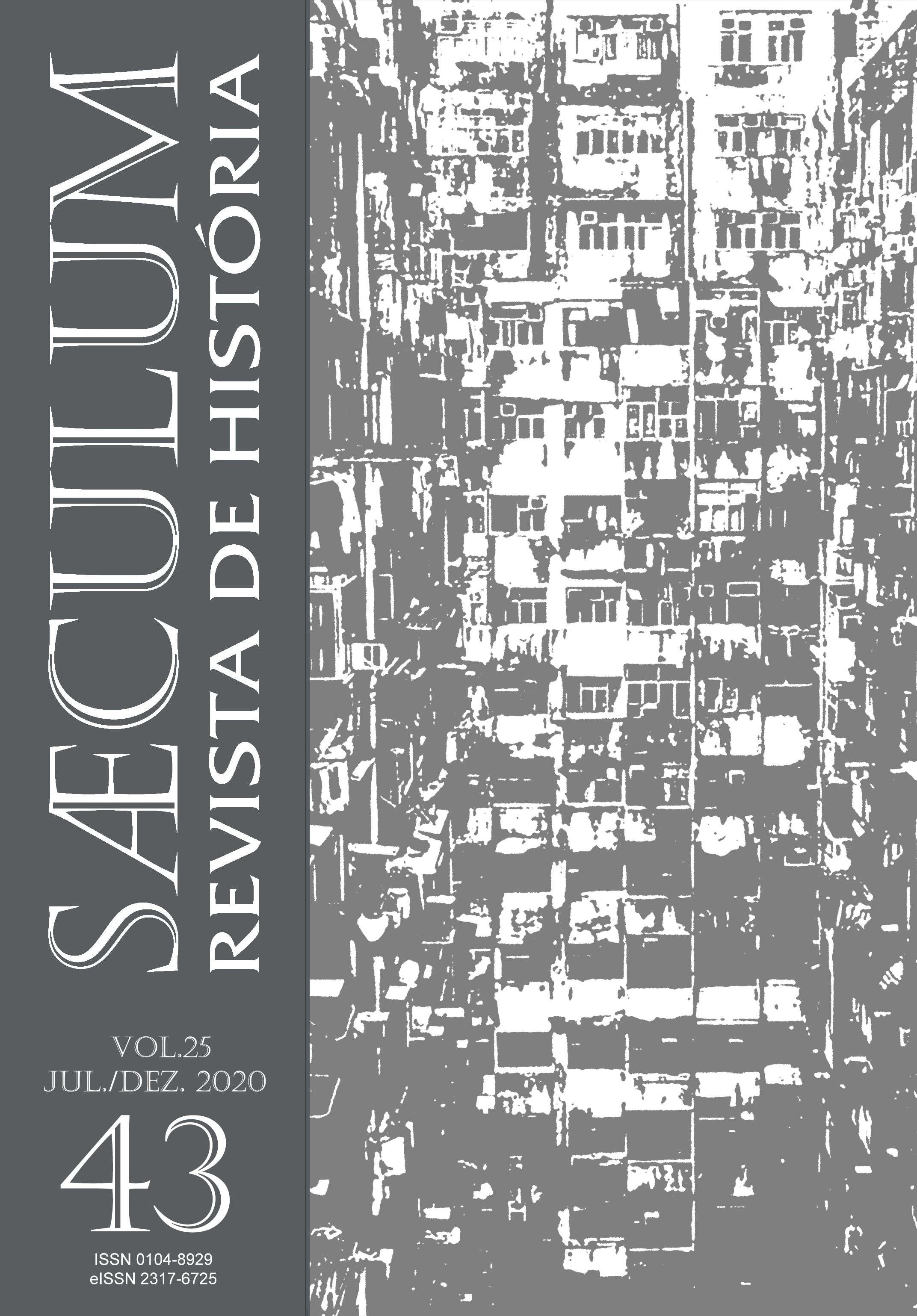“Things are getting ugly”
the whale meat consumption in Brazil between History and Anthropology (1960-1963)
DOI:
https://doi.org/10.22478/ufpb.2317-6725.2020v25n43.54373Keywords:
Food, Consumption, Popular classes, Whale meatAbstract
The following paper intends to localize the entrance of whale meat in the Brazilian market between 1960 and 1963. In the beginning, favored by the idea of “novelty”, this product quickly fell under the “popular untaste” and became a symbol for scarcity and lack of food during the period. Therefore, from interpretations relating Social History and Anthropology of Consumption, what we intend to show here is that explanations for the rejection of the whale meat as a manner of complement for the diet of the popular classes, must begin from the system of values of the subjects, relativizing, as such, the positions of marginalist economists or nutritional professionals in the period.
Downloads
References
BAYLY, Christopher Allan. “As origens do Swadeshi (indústria doméstica): tecidos e a sociedade indiana de 1700 a 1930”. In: APPADURAI, Arjun. A vida social das coisas: as mercadorias sob uma perspectiva cultural. Niterói: Ed. UFF, 2008. p. 357-399.
BORTONE, Elaine de Almeida. O Instituto de Pesquisas e Estudos Sociais (IPES) e a Ditadura Empresarial-Militar: os casos das empresas estatais federais e da indústria farmacêutica (1964-1967). Tese de Doutorado. Rio de Janeiro: PPGHIS-UFRJ, 2018.
DOUGLAS, Mary. ISHERWOOD, Baron. O mundo dos bens: para uma antropologia do consumo. Rio de Janeiro: UFRJ, 2006.
DOUGLAS, Mary. “O mundo dos bens, vinte anos depois”. Horizontes Antropológicos. Porto Alegre, v. 13, n. 28, p. 17-32, jul./dez. 2007. DOI: https://doi.org/10.1590/S0104-71832007000200002
EDMUNDSON, William; HART, Ian. A história da caça de baleias no Brasil: de peixe real a iguaria japonesa. Barueri: DISAL, 2014.
FERNANDES, Florestan. A integração do negro na sociedade de classes. Vol. 1: ensaio de interpretação sociológica. São Paulo: Globo, 2008.
FRIEDMAN, Milton. A theory of the consumption function. Nova York: Princeton University Press, 1957. DOI: https://doi.org/10.1515/9780691188485
GODELIER, Maurice. L’idéel et le matériel: pensée, économies, sociétés. Paris: Champs Essais, 2010.
HOGGART, Richard. As utilizações da cultura 1: aspectos da vida da classe trabalhadora. Lisboa: Editorial Presença, 1973.
HOGARTH, Rana A. Medicalizing blackness: making racial difference in the Atlantic world, 1780-1840. Chapel Hill: North Carolina Press, 2017.
JESUS, Carolina Maria de. Quarto de Despejo. São Paulo: Ática & Francisco Alves, 1960.
LEACH, Edmund. “Aspectos antropológicos da linguagem: categorias animais e insulto verbal”. In: DAMATTA, Roberto (Org.). Edmund Leach. São Paulo: Ática, 1983. p. 170-198.
KISHIWADA, Hitoshi. A pesca da baleia no Brasil. Nichirei Corporation, 2007.
OLIVEIRA, Francisco de. Crítica à razão dualista e O ornitorrinco. São Paulo: Ed. Boitempo, 2006.
PUREZA, Fernando Cauduro. “Isso não vai mudar o preço do feijão”: as disputas em torno da carestia em Porto Alegre (1945 a 1964). Tese de Doutorado. Porto Alegre: Programa de Pós-Graduação em História, UFRGS, 2016.
ORLOVE, Benjamin S. “Meat and Strenght: The Moral Economy of a Chilean Food Riot”. Cultural Anthropology. v. 12, n. 2, p. 234-268, 1997. DOI: https://doi.org/10.1525/can.1997.12.2.234
OSLUND, Karen. “Protecting fat mammals or carnivorous humans? Towards an environmental History of whales”. In: Historical Social Research. Vol. 29, n. 3. The frontiers of environmental History. Munique: Leibnitz Institute for the Social Sciences, Center for Historical Research, 2004. p. 63-81.
SAHLINS, Marshall. “La pensée bourgeoise: a sociedade ocidental enquanto cultura”. In: SAHLINS, Marshall. Cultura e razão prática. Rio de Janeiro: Jorge Zahar Editor, 2003. p. 166-203.
THOMPSON, Edward P. Costumes em comum: estudos sobre a cultura popular tradicional. São Paulo: Companhia das Letras, 2005.
THOMPSON, Edward P. A formação da classe operária inglesa: volume 2, A maldição de Adão. Rio de Janeiro: Paz e Terra, 1988.
VEBLEN, Thorstein. “A teoria da classe ociosa”. In: VEBLEN, Thorstein. Os pensadores. Ed. Abril, 1985. p. 3-214.












